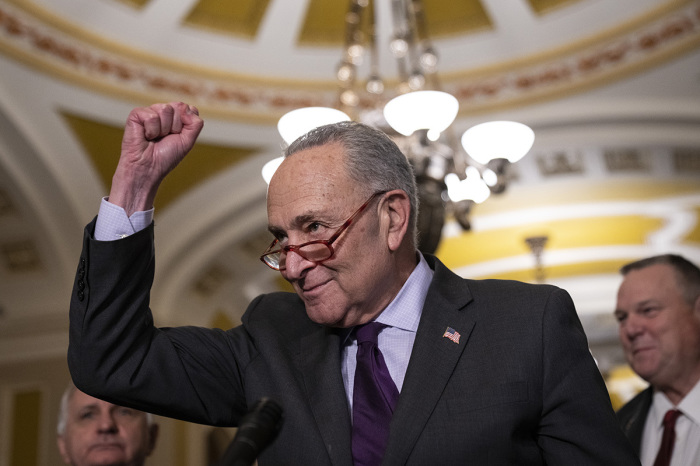
The U.S. Senate has approved legislation that will fund the federal government, paving the way for an end to the longest federal government shutdown in U.S. history.
The Republican-controlled U.S. Senate voted 60-40 Monday in favor of legislation that will fully fund the government through Jan. 30. The vote comes nearly six weeks after failure to pass a government funding bill led to a government shutdown.
Seven Democrats, along with Sen. Angus King, I-Me., joined with Republicans to back the measure after amendments to the legislation were made: Sens. Catherine Cortez Masto, D-Nev.; Dick Durbin, D-Ill.; John Fetterman, D-Pa.; Maggie Hassan, D-N.H.; Tim Kaine, D-Va.; Jacky Rosen, D-Nev.; and Jeanne Shaheen, D-N.H. Sen. Rand Paul, R-Ky., was the only Republican to oppose the spending bill.
The Republican-controlled U.S. House of Representatives had previously passed a government funding measure on Sept. 19, but efforts to pass the bill in the U.S. Senate failed multiple times because it did not reach the 60-vote threshold required for passage. Cortez-Masto, Fetterman and King repeatedly voted for the legislation, as all other Democrats opposed it.
Kaine, one of several Democrats who repeatedly voted against the bill to fund the government, elaborated on why he changed his mind in a statement published Sunday.
“This deal guarantees a vote to extend Affordable Care Act premium tax credits, which Republicans weren’t willing to do,” he maintained. “Lawmakers know their constituents expect them to vote for it, and if they don’t, they could very well be replaced at the ballot box by someone who will.”
“This legislation will protect federal workers from baseless firings, reinstate those who have been wrongfully terminated during the shutdown, and ensure federal workers receive back pay, as required by a law I got passed in 2019,” he added.
Because the Senate made changes to the bill, the House will need to vote again on the legislation before it can reach President Donald Trump’s desk. House Speaker Mike Johnson, R-La., told the press that House members could vote on the bill later this week.
The Affordable Care Act premium tax credits mentioned by Kaine were included in the Inflation Reduction Act of 2022. The tax credits enabled taxpayers whose income exceeded 400% of the federal poverty line to receive subsidies to reduce the costs of their health insurance through Jan. 1, 2026. The subsidies, which are scheduled to expire at the end of the year, were a major sticking point for Democrats throughout the shutdown negotiations.
In addition to the changes highlighted by Kaine, the Senate-passed version of the legislation will fund the government through Jan. 30, while the version passed by the U.S. House of Representatives funded it through Nov. 21. The legislation also adds appropriations related to Agriculture, Rural Development and the Food and Drug Administration, as well as the Legislative Branch and Military Construction and Veterans Affairs.
The impending resolution of the government shutdown comes as the Supplemental Nutrition Assistance Program, which is also known as food stamps, has been in limbo.
While the U.S. Department of Agriculture announced late last month that “the well” containing money for the tax-funded program serving 42 million Americans had “run dry” and that payments would no longer go out starting Nov. 1, a federal court ordered the Trump administration to make partial SNAP payments using emergency reserves. On Friday, U.S. Supreme Court Justice Ketanji Brown Jackson issued a pause on the district court decision as the matter works its way through the federal courts.
Ryan Foley is a reporter for The Christian Post. He can be reached at: ryan.foley@christianpost.com















